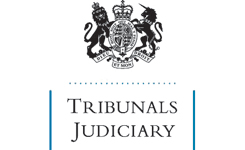|
Notes:
|
Reported as [2012] AACR 19.
Mental health – relationship between Mental Health Act and Mental Capacity Act
The appellant had been a patient detained under section 3 of the Mental Health Act 1983 (MHA) for some years. He made an application to the First-tier Tribunal, in which his representative argued that he should be discharged but that, because he lacked the capacity to make decisions in respect of his residence and consumption of alcohol, his discharge should be deferred for a deprivation of liberty procedure to be put in place under the Mental Capacity Act 2005 (MCA), by which he would be accompanied at all times in order to prevent him buying or acquiring alcohol. That would have the effect that detention under the MHA was no longer appropriate or necessary, as it would provide an alternative means of protecting his safety and that of others from the consequences of his alcohol consumption. The tribunal decided that his detention should continue and when considering alternative arrangements did not mention the MCA. The patient appealed to the Upper Tribunal. The Secretary of State had issued a Code of Practice under section 118 of the MHA, which set out a number of guiding principles, including the “least restriction principle”, requiring that people taking action without a patient’s consent must attempt to keep to a minimum the restrictions they impose on the patient’s liberty, having regard to the purpose for which the restrictions are imposed, and the principle that it was important to seek alternatives to detention, which may include procedures under the MCA, even where they deprive patients of their liberty. However, the MCA itself contains measures setting out specific circumstances in which the fact that someone is, or could be made, subject to compulsory measures under the MHA means that they cannot also be deprived of their liberty under the MCA. Those circumstances are set out in the “eligibility requirement” in paragraph 17 of Schedule A1 to the MCA, the meaning of which is defined by Schedule 1A to that Act. A person who is ineligible in accordance with Schedule 1A cannot be deprived of their liberty under the MCA. In J v the Foundation Trust [2009] EWHC 2972 (Fam); [2010] Fam 70, it was stated that the MHA is to have primacy when it applies, and that the medical practitioners referred to in sections 2 and 3 of the MHA cannot pick and choose between the two statutory regimes as they think fit having regard to general considerations. The Upper Tribunal judge considered the scope of that case and the relationship between the two statutory regimes.
Held, allowing the appeal, that:
1. the least restriction principle and its numerous applications in the Code of Practice are inherent both in the stringent conditions that must be satisfied for continuing detention pursuant to the MHA and in a patient’s rights under Articles 5 and 8 of the European Convention on Human Rights to liberty and respect for home and family life. However, the Code itself, being merely guidance on the application of the MHA, is not relevant to the interpretation of the MCA (paragraph 10);
2. the judge in J was concerned with a challenge to a standard authorisation under the MCA of a deprivation of liberty and his analysis made sense in that context where there would be two legislative regimes that might apply without any express provision for giving one priority over the other. In other contexts, it would not be possible to say which Act had priority without reference to the circumstances of the particular case (paragraph 20);
3. in the present case, there was no reason why the MCA could not be applied in anticipation of the patient moving to a care home as paragraph 12(3) of Schedule A1 to the MCA allows, and even if the proposed arrangements under the MCA would amount to a deprivation of liberty, once the patient was discharged from detention under the Mental Health Act he would no longer be within the scope of the MHA as defined by paragraph 12(1) of schedule 1A and therefore would not be ineligible for a deprivation of liberty procedure under the MCA (paragraphs 22 to 25);
4. the tribunal had erred in law in failing to deal with the argument on the Mental Capacity Act (paragraph 26).
The judge remitted the case to the tribunal for rehearing by a differently constituted panel.
|
